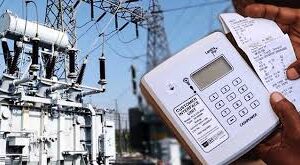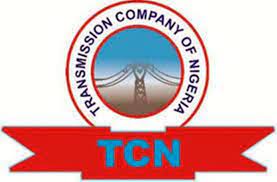Stories by Benjamin Umuteme
Abuja
Data released by the Nigerian National Petroleum Corporation (NNPC), has revealed that Nigeria lost N19.993 billion to pipeline vandalism and sabotage in the month of August.
The Corporation in its Monthly Financial and Operations Report for August 2017, noted that despite the huge loss recorded in August, it marked a 40.37 percent compared to the month of July where N14.243 billion was lost.
A breakdown of the losses showed that oil losses of N1.137 billion was recorded for the month under review compared to N343.385 million recorded in July.
Product losses of N16.485 million were recorded compared to N406.3 million in the preceding month even as N18.84 billion was expended on pipeline repairs and management, compared to N13.5 billion recorded in July 2017.
The report also noted that the Petroleum Products Marketing Company (PPMC) recorded 70 pipeline breaks in August 2017, which is a decrease of 39.66 percent compared to 116 pipeline breaks in July 2017.
Out of that figure, 62 pipelines were vandalized with Port Harcourt – Aba pipeline accounted for 46 vandalized points, representing 74 percent of the total.
The oil sector regulator also noted that its financial performance continued to be hampered by acts of vandalism and sabotage which had led to the continued shutdown of key export terminals.
“The NNPC recorded a trading deficit of N5.74 billion which is relatively lower than the previous month’s deficit of N11.87 billion. This represents 53.10 percent or N6.14 billion improvement compared to the last month’s performance.
“This improved performance is mainly due to the revamping of the Forcados export terminal which enhances Nigerian Petroleum Development Company’s (NPDC) performance despite the under-performance of the downstream value chain due to high crude oil inventory and the shutdown of KRPC and PHRC during the period. Other drag to this month’s performance includes the shutdown of Trans Niger Pipeline and production shut-in at the Que Iboe terminal and Bonga Terminal,” the report said.
While disclosing that it is in talks with various host communities to address incidences of pipeline vandalism, the report added that security synergy with international oil companies (IOC) to curb oil, gas sabotage through the deployment of a structured and holistic security apparatus to tackle incidence of oil and gas infrastructure sabotage in the country were some of the measures it was taking to arrest incidences of pipeline vandalism and sabotage.
In general, the report stated that the NNPC recorded domestic crude oil and gas receipt of N180.76 billion, consisting of N13.65 billion from the domestic gas; N166.90 billion from domestic crude oil and N0.21 billion from other receipts.
It noted that out of the amount, the sum of N83.76 billion was transferred to Joint Venture Cash Call (JVCC) being a first line charge, to guarantee continuous flow of revenue stream to Federation Account, while N45.10 billion was transferred to the Federation Account.
Tough OPEC meeting looms amid oil deficit
OPEC is heading for tougher-than-expected policy talks on Thursday amid concern that its efforts to rebalance the oil market might overshoot by creating a global deficit and spurring a further price rally.
“It will not be an easy meeting and we always look at various scenarios,” United Arab Emirates Energy Minister Suhail Al-Mazroui said on Tuesday in Dubai before leaving for the gathering of the OPEC in Vienna.
OPEC, Russia and nine other producers are cutting oil output by about 1.8 million barrels per day until March 2018, and on Thursday will discuss extending the deal.
The market had largely expected OPEC to prolong cuts until the end of 2018 but doubts have emerged in the last few days.
OPEC’s leader Saudi Arabia has signaled that it wants oil to trade at about 60 dollars per barrel as the kingdom prepares to list shares in its national oil champion Aramco and is still fighting a large fiscal deficit.
The Russian government also wants high oil prices ahead of a presidential election in March 2018.
Officials in Moscow have voiced worries about pricier oil boosting the rouble, which could undermine the competitiveness of Russia’s economy.
As oil rallied above 60 dollars per barrel, U.S. producers aggressively hedged their future production, raising fears of another spike in shale output in the U.S., which is not participating in the global production curbs.
But Goldman Sachs, one of the most active banks in commodity trading and oil producer hedging, noted that the outcome of the OPEC meeting was uncertain.
“The absence of such a consensus is due to the uncertainty on the progress of the oil market rebalancing as well as Brent oil prices trading at $63 per barrel,” the U.S. bank said in a note.
“The push for a nine-month extension, four months before the cuts end and given an accelerating rebalancing further stands in the face of prior comments that the cuts should remain data-dependent to assess their effectiveness.”
U.S. oil prices fell more than 1 percent on Monday and eased further on Tuesday from a two-year high reached.
Goldman said oil might fall further this week as the market had priced in a nine-month extension.
“We continue to expect a gradual ramp up in OPEC and Russian production from April onward,” Goldman said, adding “as a result, the announcement of an only six-month extension would still initially appear bullish relative to our expectation”.
On Friday, Russia said it was ready to support extending the output-cutting deal but had still to decide on the duration.
Nigeria’s oil revenue exceeds 2017 benchmark by 18% – NNPC
Oil revenue in the first ten months of 2017 exceeded the budget oil benchmark of $44.50 per barrel by 18 per cent, the Nigerian National Petroleum Corporation (NNPC) has disclosed.
NNPC General Manager, Group Public Affairs, Ndu Ughamadu, in a statement said the corporation’s Group General Manager, Corporate Planning and Strategy, Bala Wunti, made the disclosure during a presentation to the House of Representatives Joint Committee on 2018-2020 Medium Term Expenditure Framework (MTEF) and Fiscal Strategy Paper (FSP).
Wunti revealed that oil has sold at an average of $52.49 per barrel between January and October, adding that the 18 per cent recorded above budget benchmark was due to stability in the crude oil markets and various geopolitical dynamics around the world.
The statement also explained that the federal government’s oil production target of 2.3 million barrels per day (mbd) in the 2018 budget was realistic and achievable, adding that the price projection of $45 per barrel was conservative and based on price scenarios of $35 at the lowest, $45 at the medium and $55 at the highest.
Mr. Wunti, the statement said, stressed that most price forecasting agencies were of the view that the medium price scenario had the highest probability of occurrence on which the 2018 budget was hinged upon.
The NNPC official added that the current production capacity in the country was more than 2.3mbd but due to the insecurity in the Niger Delta region, full production capacity had not been achieved over the years.
“The 2018 crude oil national production projection for the joint ventures, modified carrier arrangements or external financing, production sharing contracts, independents, marginal fields and service contracts is about 2,298,000 barrels per day,” he said.
The statement noted that Mr. Wunti expressed worry about oversupply of oil in the international market, adding that the outlook for the market was reassuring given the positive global economic growth and improved compliance by member countries of the Organisation of the Petroleum Exporting Countries (OPEC) and Non-OPEC members with production cuts.



